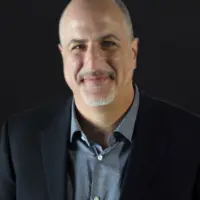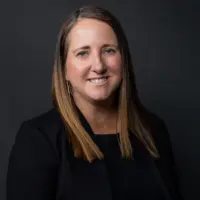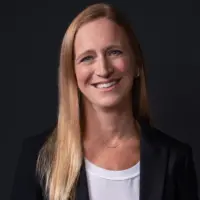About Granite Wellness Centers
This Granite Wellness Centers facility was originally Community Recovery Resources, but Community Recovery Resources has merged with Granite Wellness Centers. You can still find it in Grass Valley, California, on three private acres. The network provides inpatient and outpatient services for drug and alcohol addiction, but this location is their residential facility.
Their individualized programs allow providers to give highly targeted treatment to each client. This is showcased in their residential programs, which provide separate options for men and women and incorporate recovery challenges specific to both. Detox, drug testing, and medication assisted treatment are all available, too.
As for payment, they accept all insurance plans but Kaiser.
An Intimate Setting for Addiction Recovery
A fear that people sometimes have when entering a drug and alcohol addiction treatment program is that they’ll get lost in the shuffle. What I like about this location is that both residential programs serve only 20 clients at a time. It’s enough that you’ll get to meet and connect with a diverse range of other people in recovery, but you can still expect individualized and timely responses from staff when you need them.
Treatment That Works on Your Time
Effective treatment takes time, but by that same token, everyone progresses through treatment at their own pace. Unfortunately, it’s not uncommon to find inpatient programs that maintain a rigid schedule of when clients leave and how long they stay.
While the residential programs at this location have a maximum length of stay at 90 days, the length of your program is also determined by your needs and progress. That means you won’t have to stay for the full 90 days if you and your care team determine it isn’t necessary, so you can move on to the next step of your recovery journey sooner.
Specialized Support for Mothers
Hope House is the residential program here for women. What sets it apart from other programs (besides the focus on women’s challenges in recovery) is that children up to 12 years old can reside with you and receive childcare during your stay. The program also includes specialty care for pregnant women.
Rehab Score
Accepted Insurance
Other Forms of Payment
Private insurance refers to any kind of healthcare coverage that isn't from the state or federal government. This includes individual and family plans offered by an employer or purchased from the Insurance Marketplace. Every plan will have different requirements and out of pocket costs so be sure to get the full details before you start treatment.
Self-pay involves paying for treatment out of your own pocket. You can use savings or credit, get a personal loan, or receive help from family and friends to fund your treatment. If you don't have insurance or your insurance plan doesn't cover a specific program, self-pay can help ensure you still get the care you need.
Addiction Treatments
Levels of Care
Drug and alcohol addiction often takes a heavy toll on one's body. Over time, a physical dependence can develop, meaning the body physiologically needs the substance to function. Detox is the process of removing drugs and/or alcohol from the body, a process that can be lethal if mismanaged. Medical detox is done by licensed medical professionals who monitor vital signs and keep you safe, healthy, and as comfortable as possible as you go through detox and withdrawal.
Residential treatment programs are those that offer housing and meals in addition to substance abuse treatment. Rehab facilities that offer residential treatment allow patients to focus solely on recovery, in an environment totally separate from their lives. Some rehab centers specialize in short-term residential treatment (a few days to a week or two), while others solely provide treatment on a long-term basis (several weeks to months). Some offer both, and tailor treatment to the patient's individual requirements.
Treatments
The goal of treatment for alcoholism is abstinence. Those with poor social support, poor motivation, or psychiatric disorders tend to relapse within a few years of treatment. For these people, success is measured by longer periods of abstinence, reduced use of alcohol, better health, and improved social functioning. Recovery and Maintenance are usually based on 12 step programs and AA meetings.
Drug rehab in California teaches participants constructive ways to stay clean and sober. Treatment revolves around helping individuals stop using the substance they are addicted to and learn healthy habits to avoid relapse.
Many of those suffering from addiction also suffer from mental or emotional illnesses like schizophrenia, bipolar disorder, depression, or anxiety disorders. Rehab and other substance abuse facilities treating those with a dual diagnosis or co-occurring disorder administer psychiatric treatment to address the person's mental health issue in addition to drug and alcohol rehabilitation.
Opioid rehabs specialize in supporting those recovering from opioid addiction. They treat those suffering from addiction to illegal opioids like heroin, as well as prescription drugs like oxycodone. These centers typically combine both physical as well as mental and emotional support to help stop addiction. Physical support often includes medical detox and subsequent medical support (including medication), and mental support includes in-depth therapy to address the underlying causes of addiction.
Substance rehabs focus on helping individuals recover from substance abuse, including alcohol and drug addiction (both illegal and prescription drugs). They often include the opportunity to engage in both individual as well as group therapy.
Programs
Adult rehab programs include therapies tailored to each client's specific needs, goals, and recovery progress. They are tailored to the specific challenges adult clients may face, including family and work pressures and commitments. From inpatient and residential treatment to various levels of outpatient services, there are many options available. Some facilities also help adults work through co-occurring conditions, like anxiety, that can accompany addiction.
Recovery is most successful when clients feel accepted and validated by their peers and treatment providers. Facilities that offer LGBTQ-inclusive programming are committed to creating a safe space where everyone can grow and recover without fear of judgment or discrimination. They will have dedicated policies in place to create a safe and supportive environment that fosters free expression.
Young adulthood can be an exciting, yet difficult, time of transition. Individuals in their late teens to mid-20s face unique stressors related to school, jobs, families, and social circles, which can lead to a rise in substance use. Rehab centers with dedicated young adult programs will include activities and amenities that cater to this age group, with an emphasis on specialized counseling, peer socialization, and ongoing aftercare.
Clinical Services
Trauma therapy addresses traumatic incidents from a client's past that are likely affecting their present-day experience. Trauma is often one of the primary triggers and potential causes of addiction, and can stem from child sexual abuse, domestic violence, having a parent with a mental illness, losing one or both parents at a young age, teenage or adult sexual assault, or any number of other factors. The purpose of trauma therapy is to allow a patient to process trauma and move through and past it, with the help of trained and compassionate mental health professionals.
Staff

Aman Bhutani
Chief Executive Officer

Roger Chen Chief Operating Officer

Mark McCaffrey
Chief Financial Officer

Monica Bailey
Chief People Officer

Charles Beadnall
Chief Technology Officer

Fara Howard Chief Marketing Officer
Contact Information
159 Brentwood Drive
Grass Valley, CA 95945











